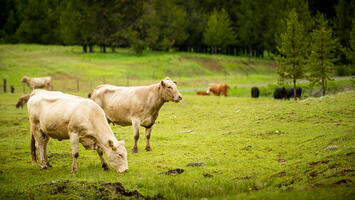
Elite billionaire organizations and foundations, government agencies, and activist pressure groups are funding and coordinating a global war on modern agriculture, nutrition, and Earth’s poorest, hungriest people. Instead of helping more families get nutritious food, better healthcare, and higher living standards, they’re doing the opposite and harming biodiversity in the process.
The World Economic Forum wants to reimagine, reinvent and transform the global food system, to eliminate greenhouse gases from food production. Central to its plan is alternatives to animal protein: meal worm potato chips, bug burgers instead of beef patties, and meat loaves and sausages made from lake flies, for instance. Fixing the WEF’s toxic workplace is apparently a low priority.
A UN Food and Agriculture Organization report advises that turning “edible insects” into “tasty” food products can create thriving local businesses and even promote the “inclusion of women.”
Created to alleviate global poverty, the World Bank has decided the “manmade climate crisis” is a far greater threat to impoverished families than contaminated water, malaria and other killer diseases, hunger, or even two billion people still burning wood and dung because they don’t have reliable, affordable electricity. It has unilaterally decreed that 45% of its funds – an extra $9 billion in FY2024 – will be shifted to helping the poor “better withstand the devastation of climate change.”
(The Bank has also decided that even more of its taxpayer funding – $300-million instead of “only” $70-million – should be gifted to the Palestinian Authority, which pays terrorists to murder Israelis.)
Of course, most of the better and lesser-known environmental pressure groups are also deeply involved in food, agriculture and energy policy campaigns: Greenpeace, Sierra Club, EarthJustice, Friends of the Earth, Pesticide Action Network, Center for Food Safety, La Via Campesina (The Peasant Way), Alliance for Food Sovereignty in Africa, and countless others.
Like the rest of the “agro-ecology” movement, they deride and malign modern agriculture as a scourge inflicted by greedy mega-corporations. They oppose fossil fuels, pesticides, herbicides and biotechnology. They extol “food sovereignty” and the “right to choose.” But their policies reflect top-down tyranny and bullying, with little room for poor farmers to embrace modern agricultural technologies and practices.
In addition to WEF, FAO and World Bank support, these hard-green organizations have the ideological, organizational and financial backing of the US Agency for International Development, EU agencies, and a host of progressive and far-left American, European and other foundations.
Read the rest of this piece at Townhall.
Paul Driessen is senior policy advisor for the Committee For A Constructive Tomorrow (www.CFACT.org) and author of books, reports and articles on energy, environmental, climate and human rights issues.
Photo: U.S. Department of Agriculture, Public Domain.












